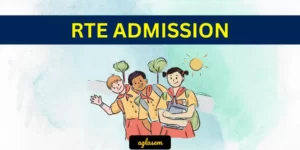rte education
The term "RTE education" refers to education provided under the Right to Education (RTE) Act, which is a fundamental right recognized by the Indian government. The RTE Act, enacted in 2009, mandates free and compulsory education for all children between the ages of 6 and 14.
Here are some key aspects of RTE education:
- Free Education: RTE education ensures that every child between the ages of 6 and 14 has the right to free and compulsory education.
- Compulsory Education: It is mandatory for the government and local authorities to ensure that every child in the specified age group attends school. No child can be denied admission on the basis of inability to pay fees.
- Quality Standards: The RTE Act sets minimum norms and standards for school infrastructure, teacher qualifications, pupil-teacher ratio, and other facilities to ensure quality education. This includes provisions for adequate classrooms, playgrounds, libraries, and other amenities.
- Non-Discrimination: RTE education prohibits discrimination on the basis of religion, caste, gender, or socio-economic status in admission and other aspects of education. Every child has an equal opportunity to access education.
- Reservations: Private unaided schools are required to reserve a certain percentage of seats for children from economically weaker sections and disadvantaged groups. This helps in ensuring equitable access to quality education.
- No Detention Policy: The RTE Act includes a provision for a no-detention policy up to Class 8, meaning students cannot be detained or failed until this grade. This aims to reduce drop-out rates and promote learning.
RTE education plays a crucial role in promoting universal access to education, reducing disparities in educational opportunities, and improving the overall quality of education provided in India. It aims to ensure that every child has the opportunity to receive a quality education, regardless of their background or circumstances.

